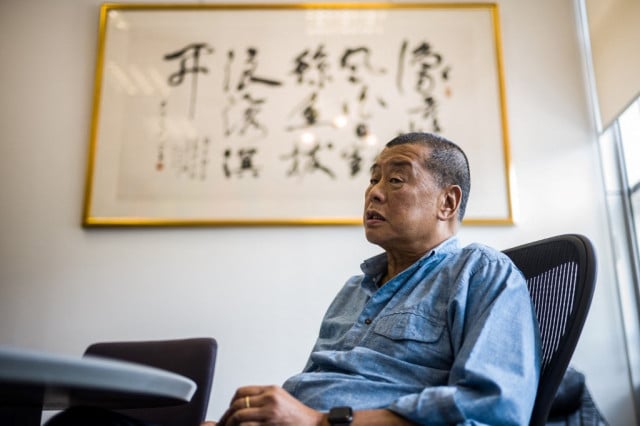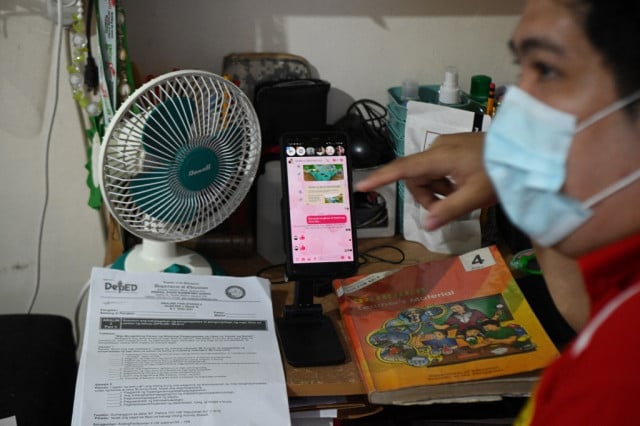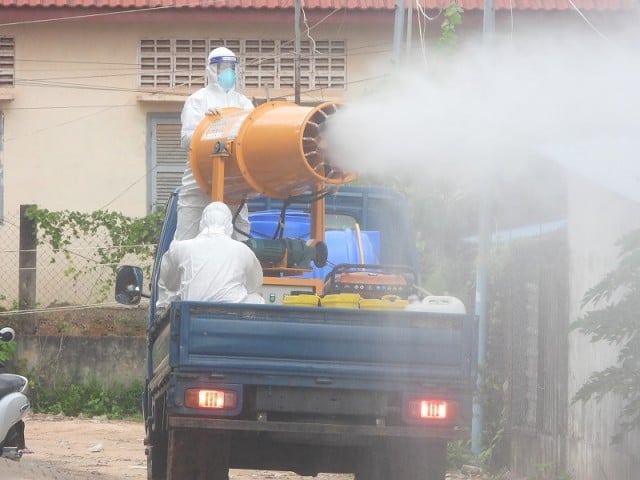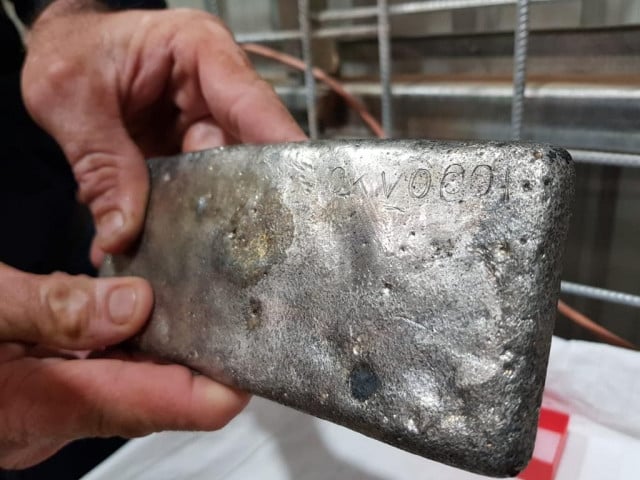Beijing's crackdown on dissent in Hong Kong

- Agence France-Presse
- April 16, 2021 9:27 AM
Hong Kong, China | China has moved to crush Hong Kong's democracy movement after huge and violent protests rocked the finance hub last year, hammering the flickering freedoms and autonomy it promised the city would keep after British colonial rule ended in 1997.
In the latest salvo, on Friday media tycoon Jimmy Lai was jailed for 12 months for his part in one of Hong Kong's biggest ever protests in 2019.
Here are some key developments over the last year.
- First confirmation of security law -
The first whispers of a new national security law for Hong Kong come last May when China's top legislative body unveils plans to strengthen "enforcement mechanisms" in the city.
In a major departure from norms, Beijing announces that the law will not be debated and passed by Hong Kong's legislature.
Instead it will be imposed by fiat, an unprecedented direct intervention by the central government.
The precise contents of the legislation are kept hidden from Hong Kong's 7.5 million residents.
- Law passed -
China's rubber-stamp legislature unanimously passes the security law on June 30 and it is immediately signed by President Xi Jinping.
The contents are published just one hour before it comes into effect that evening.
It outlaws anything China deems to be secession, subversion, terrorism or collusion with foreign forces.
Beijing says it will have jurisdiction over cases deemed to be serious breaches and introduces life sentences for the worst offences.
It also allows China's security agents to operate openly in Hong Kong for the first time and outlaws peaceful political views such as pushing for independence or greater autonomy.
Four young pro-democracy leaders announce the same day they are resigning from their party, Demosisto, which is then disbanded.
One of them, Nathan Law, flees the territory.
- First arrests -
On July 1, the 23rd anniversary of Hong Kong's return to Chinese rule, the first arrests are made under the new law, mainly for chanting or displaying now banned slogans.
A week later China's security agents move into a requisitioned hotel which now serves as the force's headquarters.
Other early arrests include four students for comments made on social media.
- Fugitives detained -
Twelve people are arrested in August by the Chinese coast guard trying to flee Hong Kong by speedboat for Taiwan.
The group, most of whom were facing charges linked to last year's protests, disappear into the mainland's opaque legal system until their eventual conviction in late December at a closed trial.
- Politicians disqualified -
A month after the security law takes effect, 12 democracy activists, including four sitting lawmakers, are disqualified from running in an upcoming legislative election.
Officials cite political views such as criticising the national security law, campaigning to win a legislation-blocking majority and refusing to recognise China's sovereignty.
One day after that, the government postpones the September elections for more than a year, blaming the coronavirus pandemic.
- Libraries and media -
In July, a number of books written by democracy activists are withdrawn from Hong Kong libraries, and three days later the government orders schools to get rid of books that could be in breach of the security law.
Two pro-democracy veterans are sacked by universities after they served jail terms for taking part in protests.
In August, hundreds of police raid the newsroom of pro-democracy newspaper Apple Daily and arrest its owner, media tycoon Jimmy Lai.
In November, a journalist from the public-funded Radio Television Hong Kong is charged with making a false statement while obtaining information on vehicle licence plates for an investigation into whether police failed to stop a mob attack on protesters last year.
- Legislature neutered -
Hong Kong authorities disqualify four serving pro-democracy lawmakers because of their views in early November.
The move comes just minutes after China's top lawmaking committee rules the city's government can remove any legislator deemed a threat to national security without going through the courts.
The remaining 15 pro-democracy lawmakers all quit in protest.
The legislature was only half elected by popular vote, a tactic that ensured a pro-Beijing majority, but the resignations reduce the once-feisty chamber to a gathering of Chinese loyalists.
- Activists jailed -
Three prominent young activists are jailed in early December after pleading guilty to various charges including inciting an unlawful assembly, relating to a rally outside police headquarters in 2019.
Ivan Lam, Agnes Chow and Joshua Wong are given sentences ranging from seven to 13-and-a-half months in prison.
- Media boss imprisoned -
Media tycoon Lai is jailed for 12 months for his part in one of Hong Kong's biggest-ever protests in August 2019. It is the first time the 73-year-old has received a sentence for his activism.
Four other defendants also receive immediate jail terms for participation in the demonstration, which called for democracy and greater police accountability.
Four other defendants, including 82-year-old respected barrister Martin Lee, known as the "father of democracy" in Hong Kong, receive suspended sentences.
rma-jta/axn/reb
© Agence France-Presse















